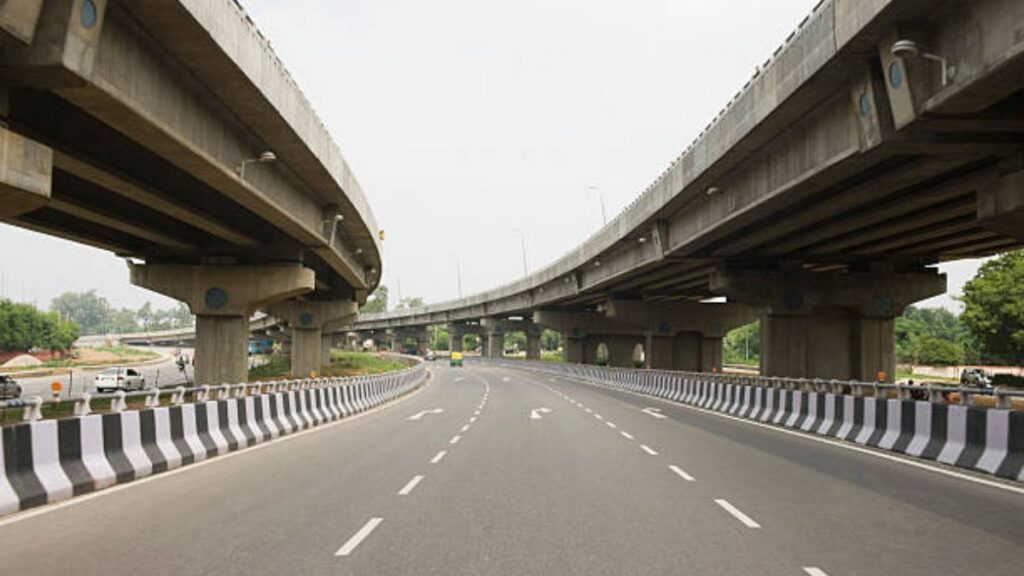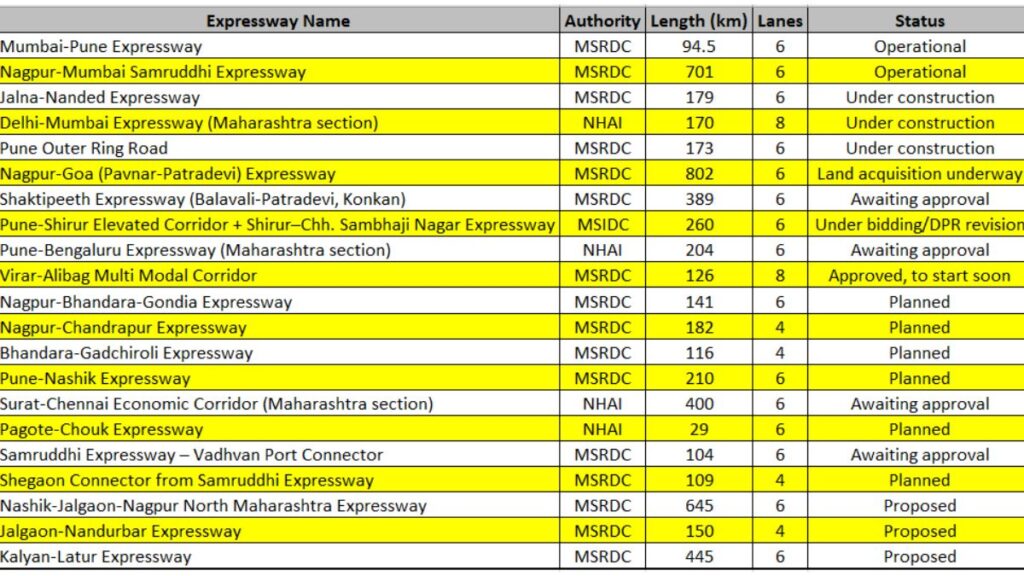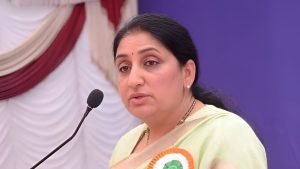Expressways in Maharashtra: Over 5,600 Km of High-Speed Corridors Operational, Under Construction, or Planned

Maharashtra is rapidly expanding its expressway network to improve road connectivity across the state. While some routes are already operational, several others are under construction or awaiting approval. Together, these projects will cover more than 5,600 km once complete. Find the table of details of every expressway in Maharashtra towards the end of this article.
The Mumbai-Pune Expressway, India’s first six-lane concrete expressway, remains one of the busiest, stretching 94.5 km and connecting the financial capital with Pune. Another major project, the Nagpur-Mumbai Samruddhi Expressway, covers 701 km and is fully operational, linking eastern and western Maharashtra.
Among the big projects under construction are the Jalna-Nanded Expressway (179 km), the Delhi-Mumbai Expressway’s Maharashtra section (170 km), and the Pune Outer Ring Road (173 km). Work is also on for the Pune-Shirur Elevated Corridor with an extension to Chhatrapati Sambhaji Nagar (260 km) and the Pune-Bengaluru Expressway’s Maharashtra stretch (204 km).
Some routes are still at the land acquisition or planning stage. The Nagpur-Goa Expressway (802 km) and the Shaktipeeth Expressway (389 km) are awaiting approvals, while the Virar-Alibag Multi Modal Corridor (126 km) has received clearance and will soon move towards construction.
The state also has several regional expressways planned to boost connectivity in Vidarbha, Marathwada, and north Maharashtra. These include the Nagpur-Bhandara-Gondia (141 km), Nagpur-Chandrapur (182 km), Bhandara-Gadchiroli (116 km), Pune-Nashik (210 km), and the Shegaon Connector (109 km).
Future proposals include the Nashik-Jalgaon-Nagpur North Maharashtra Expressway (645 km), Jalgaon-Nandurbar Expressway (150 km), and the Kalyan-Latur Expressway (445 km). These projects are still at the planning stage, with detailed project reports (DPRs) under review.

Altogether, Maharashtra’s planned expressway network promises to ease travel, cut down journey times, and support economic growth by improving logistics across industrial, agricultural, and tourism hubs in the state.








